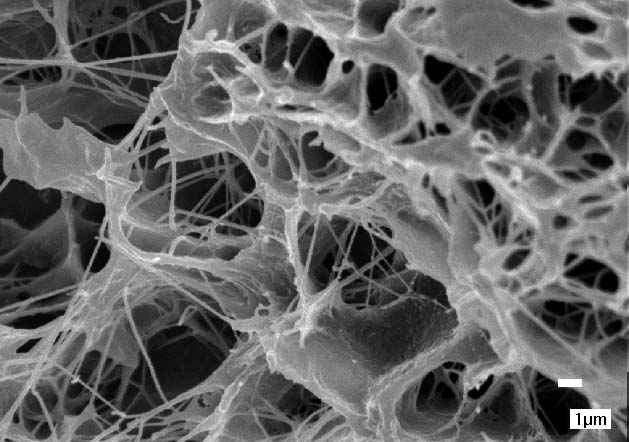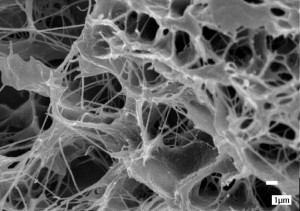GeniPhys Commercializes Self-Assembling Collagen for Research and Medical Applications

 Research team from Purdue University-based startup GeniPhys led by Associate Professor Sherry Harbin is commercializing their collagen polymers known as Collymers that exhibit uncommon self-assembly properties not seen in conventional collagen. These collagens work in a similar way as those in the body’s tissues – they polymerize to form fibrils. As such, they can be used to customize 3D collagen-fibril matrices and materials for cell and tissue research, in vitro drug discovery and toxicity testing as well as 3D bioprinting.
Research team from Purdue University-based startup GeniPhys led by Associate Professor Sherry Harbin is commercializing their collagen polymers known as Collymers that exhibit uncommon self-assembly properties not seen in conventional collagen. These collagens work in a similar way as those in the body’s tissues – they polymerize to form fibrils. As such, they can be used to customize 3D collagen-fibril matrices and materials for cell and tissue research, in vitro drug discovery and toxicity testing as well as 3D bioprinting.
Type I Collagen Fibrils Define 3D Microenvironment in the Extracellular Matrix (ECM) in vivo
The discovery of Collymers is inspired by the knowledge of the synthesis and signaling mechanisms of collagen and cells in the body. Collagen molecules are able to signal and guide cell adhesion, proteolytic degradation and multi-scale assembly upon their synthesis and secretion in the extracellular space. With prior knowledge of the ECM being the structural and mechanical support for tissues and organs, the team found that type I collagen fibril networks contribute to the instructional cues that control cell fate and tissue formation.
Formulation of the First-Ever Standardized Collagen Polymers
Collymers are the first and only collagens that are standardized based on their polymerization capacity, i.e. their ability to form fibrils in addition to exhibit self-assembly properties. This formulation will now allow scientists to customize 3D cell culture systems for biological research that would simplify and speed drug development and toxicity testing.
The future of the discovery lies in the production of medical-grade Collymers for veterinary and medical applications such as wound and hemostatic dressings, cell-instructive implants, hybrid medical devices, engineered tissue and organ replacement, therapeutic cell and molecule delivery, and the list goes on. Such innovation would indeed transform lives as the needs of the research and medical industries are catered for.

